best Creedence Clearwater Revival songs (A-Z) ↓↓↓

Scroll down and discover the best Creedence Clearwater Revival songs (A-Z)!
We've meticulously organized our extensive library for your convenience. Explore best Creedence Clearwater Revival songs sorted by popularity to easily find the tracks that resonate most with listeners, or browse through our alphabetical (A-Z) listing to discover hidden gems and classic favorites alike. Whether you’re a long-time fan or new to Creedence Clearwater Revival music, there’s something for everyone to enjoy.
♫Creedence Clearwater Revival
Best Creedence Clearwater Revival songs
- 1 Proud Mary
- 2 Who’ll Stop The Rain
- 3 Bad Moon Rising
- 4 Suzie Q
- 5 Down On The Corner
- 6 I Put A Spell On You
- 7 Born On The Bayou
- 8 Have You Ever Seen The Rain?
- 9 Lodi
- 10 Hey Tonight
- 11 Cotton Fields
- 12 Green River
- 13 I Heard It Through The Grapevine
- 14 Hello Mary Lou
- 15 The Midnight Special
- 16 Lookin’ Out My Back Door
- 17 Walk On The Water
- 18 Travelin’ Band
- 19 Hey, Tonight
- 20 Ooby Dooby
- 21 Long As I Can See The Light
- 22 Up Around The Bend
- 23 Fortunate Son
- 24 Good Golly Miss Molly
- 25 Molina
- 26 Ramble Tamble
- 27 Someday Never Comes
- 28 Need Someone To Hold
- 29 Run Through The Jungle
- 30 Before You Accuse Me
A-Z songs of Creedence Clearwater Revival (66)
- ♫ (wish I Could) Hideaway
- ♫ Bad Moon Rising
- ♫ Before You Accuse Me
- ♫ Bootleg
- ♫ Born On The Bayou
- ♫ Born To Move
- ♫ Chameleon
- ♫ Commotion
- ♫ Cotton Fields
- ♫ Cross—tie Walker
- ♫ Don’t Look Now (it Ain’t You Or Me)
- ♫ Door To Door
- ♫ Down On The Corner
- ♫ Effigy
- ♫ Feelin’ Blue
- ♫ Fortunate Son
- ♫ Get Down Woman
- ♫ Gloomy
- ♫ Good Golly Miss Molly
- ♫ Graveyard Train
- ♫ Green River
- ♫ Have You Ever Seen The Rain?
- ♫ Hello Mary Lou
- ♫ Hey Tonight
- ♫ Hey, Tonight
- ♫ Hideaway
- ♫ I Heard It Through The Grapevine
- ♫ I Put A Spell On You
- ♫ It Came Out Of The Sky
- ♫ It’s Just A Thought
- ♫ Jeremiah Was A Bullfrog
- ♫ Keep On Chooglin’
- ♫ Lodi
- ♫ Long As I Can See The Light
- ♫ Lookin’ For A Reason
- ♫ Lookin’ Out My Back Door
- ♫ Molina
- ♫ My Baby Left Me
- ♫ Need Someone To Hold
- ♫ Ninety—nine And A Half (won’t Do)
- ♫ Ooby Dooby
- ♫ Pagan Baby
- ♫ Penthouse Pauper
- ♫ Poorboy Shuffle
- ♫ Porterville
- ♫ Proud Mary
- ♫ Ramble Tamble
- ♫ Run Through The Jungle
- ♫ Sail Away
- ♫ Sailor’s Lament
- ♫ Sinister Purpose
- ♫ Someday Never Comes
- ♫ Suzie Q
- ♫ Sweet Hitch—hiker
- ♫ Take It Like A Friend
- ♫ Tearin’ Up The Country
- ♫ The Midnight Special
- ♫ The Night Time Is The Right Time
- ♫ The Working Man
- ♫ Tombstone Shadow
- ♫ Travelin’ Band
- ♫ Up Around The Bend
- ♫ Walk On The Water
- ♫ What Are You Gonna Do
- ♫ Who’ll Stop The Rain
- ♫ Wrote A Song For Everyone
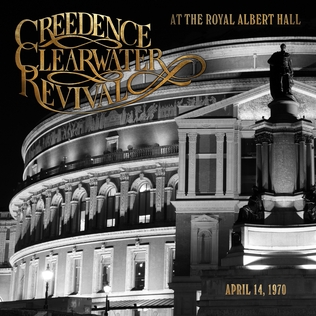 At the Royal Albert Hall (2022)
At the Royal Albert Hall (2022)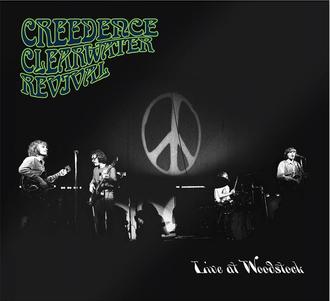 Live at Woodstock (2019)
Live at Woodstock (2019) The Concert (1980)
The Concert (1980) Live in Europe (1973)
Live in Europe (1973) Mardi Gras (1972)
Mardi Gras (1972) Cosmo’s Factory (1970)
Cosmo’s Factory (1970) Pendulum (1970)
Pendulum (1970)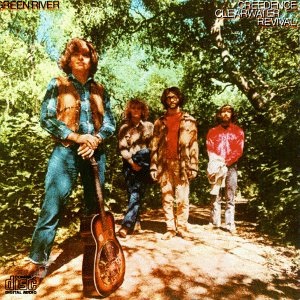 Green River (1969)
Green River (1969)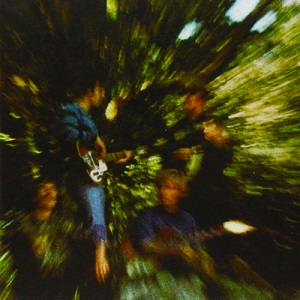 Bayou Country (1969)
Bayou Country (1969)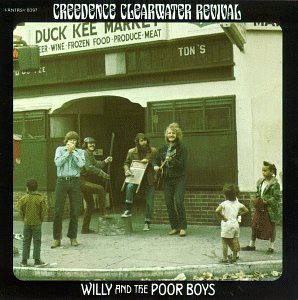 Willy and the Poor Boys (1969)
Willy and the Poor Boys (1969) Creedence Clearwater Revival (1968)
Creedence Clearwater Revival (1968)